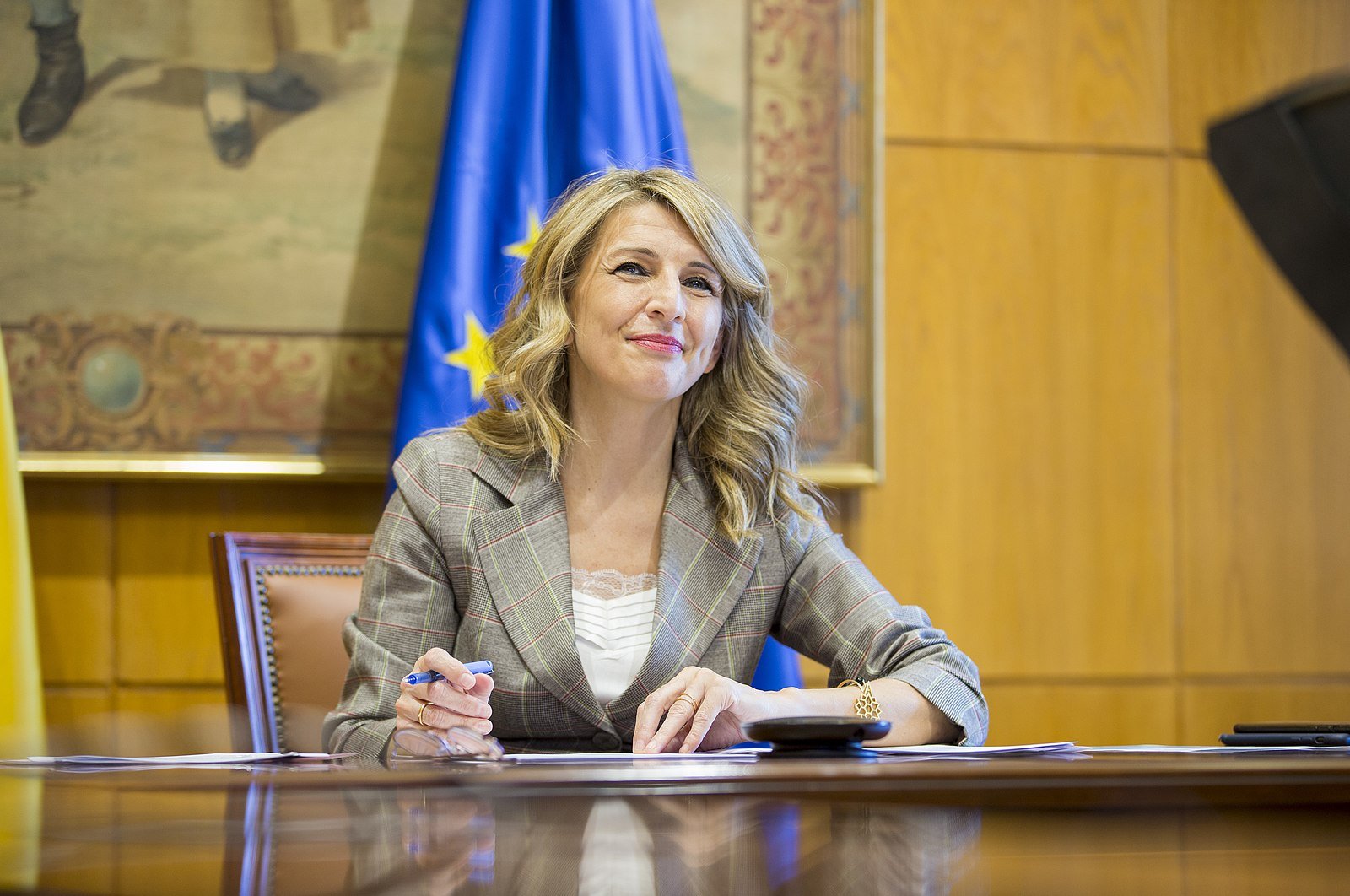Sumar: new hope for Spain’s left or a tool for the right to divide?
Yolanda Díaz (Photo: AntonMST29 CC BY-SA 4.0 via Wikimedia Commons)
‘I want to be the first female prime minister of this country.’ This was Spanish labour minister and deputy prime minister Yolanda Díaz’s conclusion after announcing her candidacy in this year’s general election as founder of the left-wing movement Sumar. Officially a political party as of May this year, Sumar is billed as a progressive coalition bringing together notable figures on the Spanish left, including Barcelona’s mayor Ada Colau and Ceuta assembly member Fatima Hamed. It is a party in which, declared Díaz at the same event, ‘everyone has a place’.
Spain’s political left faces a moment of crisis. After the country’s left-wing governing coalition experienced a resounding defeat in the local elections in May, prime minister Pedro Sánchez made the decision to advance the general election from December to July.
It is not only the increase in popularity among right-wing parties - the conservative Partido Popular (PP) and far-right Vox - that brought about this result. The left-wing coalition has suffered from intense internal divisions in the past year: the defining conflict was that between Sánchez’s socialist PSOE party and the far-left Podemos over the controversial ‘Solo sí es sí’ law that saw months of clashes between the two parties.
With the country’s left-wing parties in turmoil, enter Yolanda Díaz. An employment lawyer by trade, her first political affiliation was to Spain’s Communist party. Now serving in Sánchez’s governing coalition, she is a popular figure, both on the political stage and behind the scenes; journalists and political commentators, such as El Mundo’s Lucía Méndez in a recent podcast, speak to her charm and genuine warmth.
The new Spain that Díaz envisages has at its core affordable housing, workers’ rights and the country’s youth. In Sumar’s manifesto, she promises the creation of new social housing, help with mortgages and a reduced, thirty-two hour working week with a simultaneous increase in the minimum wage: ‘Trabajar menos para vivir mejor’. Her proposed policies extend beyond these areas of focus to climate and social issues too: the creation of jobs within the renewable energy sector, a law officially recognising different family structures and a ‘feminist agenda’ that will continue the fight against violencia machista and workplace harassment.
Perhaps most widely talked-about is her herencia universal policy, aimed at improving equality of opportunity, which would see every young person given a sum of €20,000 to use from the age of 23 for studies or entrepreneurship. When announcing her candidacy, Díaz called young people the generation ‘most committed to what matters’ in the country, but one ‘abandoned’ by successive governments over the past forty years.
Polls by YouGov and El País place Sumar at joint third place alongside far-right Vox, behind the right-wing PP and the left-wing PSOE respectively. Sunday’s election result will be crucial, and perhaps even make-or-break, for the future of Díaz’s party. It will mark the first set of elections in which Sumar has participated; until the movement gains more momentum nationally, its raison d'être is somewhat as an alternative to the established political parties in this upcoming election.
Sumar is a gamble, one that could either encourage voters tired of the current coalition to maintain hope in progressive politics, or one that could fragment the left further and bring PP closer to an absolute majority. But no matter Sunday’s result, in just a few months Díaz has succeeded in becoming a serious contender alongside the country’s established political parties, to acknowledge, unlike the other parties, young people and workers as the country’s future.
